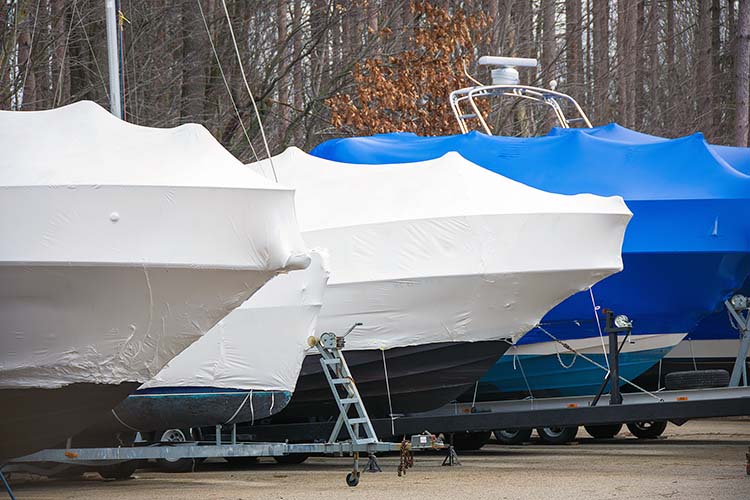Boat Storage Solutions – Preparing Your Unit and Boat for a Storm
Natural disasters happen, and while we can only do so much to control the damage, we can do our best to protect our belongings before the storm starts. Below are 5 tips on preparing your storage unit and boat before a storm.
Insurance
Insurance is one of those things that most of us don’t worry about. We usually think that nothing bad will happen to us and we don’t need it. However, especially if you are storing your belongings in an area with frequent natural disasters, it is important to make sure your items are covered. Some facilities require insurance, but if they don’t, your personal insurance company can likely help you. This is a great preventative tool that can save you the financial strife of purchasing all new items in case of a hurricane, tornado, or other natural disaster.
For more information on choosing the right insurance for your storage unit, you can check out this guide. Additionally, some storage facilities offer their own insurance plans, so it’s worth asking about these options when renting your unit.
Store Items on Top of Pallets
If it is possible, when you move into your storage unit, try to store things on top of pallets with a tarp underneath. The tarp protects the floor from scratches, and the pallets protect your items from water damage in case of a flood or hurricane. You can usually get pallets for free or extremely cost-effectively from local shipping companies or other facilities. Remember to always check with the owner or manager of the facility to make sure this is in compliance with their rules!
Using pallets can provide an extra layer of protection. To learn more about where to find pallets and how to use them effectively, visit this resource.
Check Your Unit Before the Storm Starts
When you are aware that a storm is coming, if it is still safe to do so, you should go to your unit and get anything extremely important out of it. For example, if you know you have stored birth certificates or social security cards, you should retrieve them before the storm. You should also check that the door is securely locked and things are as far off of the floor as possible.
Check Your Unit After the Storm
You should go to your unit and check on your items as soon as (safely) possible after the storm or disaster. This can prevent unnecessary damage caused by water or other potentially damaging materials. Another reason to check as soon as you can is because if it is necessary to file an insurance claim, you want to take prudent measures and get the claim filed as soon as possible. Many insurance companies will not accept a claim if you did not do everything you could to minimize damage. For example, if there was a flood and you went to your storage unit three weeks later and found mold, the claim may not be covered. However, if you go the first day it is safe to do so and take preventative measures, you will be more likely to have your claim accepted.
For a comprehensive guide on how to handle insurance claims after a natural disaster, check out this article.
Securing Your Boat
If you own a boat, securing it properly before a storm is crucial to prevent damage. Here are some steps you can take to protect your boat:
- Remove Valuable Items: Remove any valuable items or electronics from the boat to avoid water damage.
- Use Strong Dock Lines: Ensure you have strong dock lines and double up on them if necessary. Secure your boat to the dock using a crisscross pattern to provide extra stability.
- Check Bilge Pumps: Make sure your bilge pumps are working correctly and that the batteries are fully charged. Bilge pumps can help remove water that might enter the boat during the storm.
- Seal Openings: Seal all openings such as windows, hatches, and doors to prevent water from entering the boat.
- Consider Hauling Out: If possible, consider hauling your boat out of the water and storing it on land. Boats stored on land are generally safer during severe storms.
For more detailed information on preparing your boat for a storm, you can refer to this guide.
Additional Tips
While these suggestions may not fully protect your items from a natural disaster, they will certainly help. It’s always better “to be safe than sorry”!
For further reading on preparing for natural disasters, FEMA provides extensive resources and guidelines, which you can access here.
By taking these steps, you can significantly increase the chances of your belongings and boat surviving a storm intact. Stay safe and proactive!

